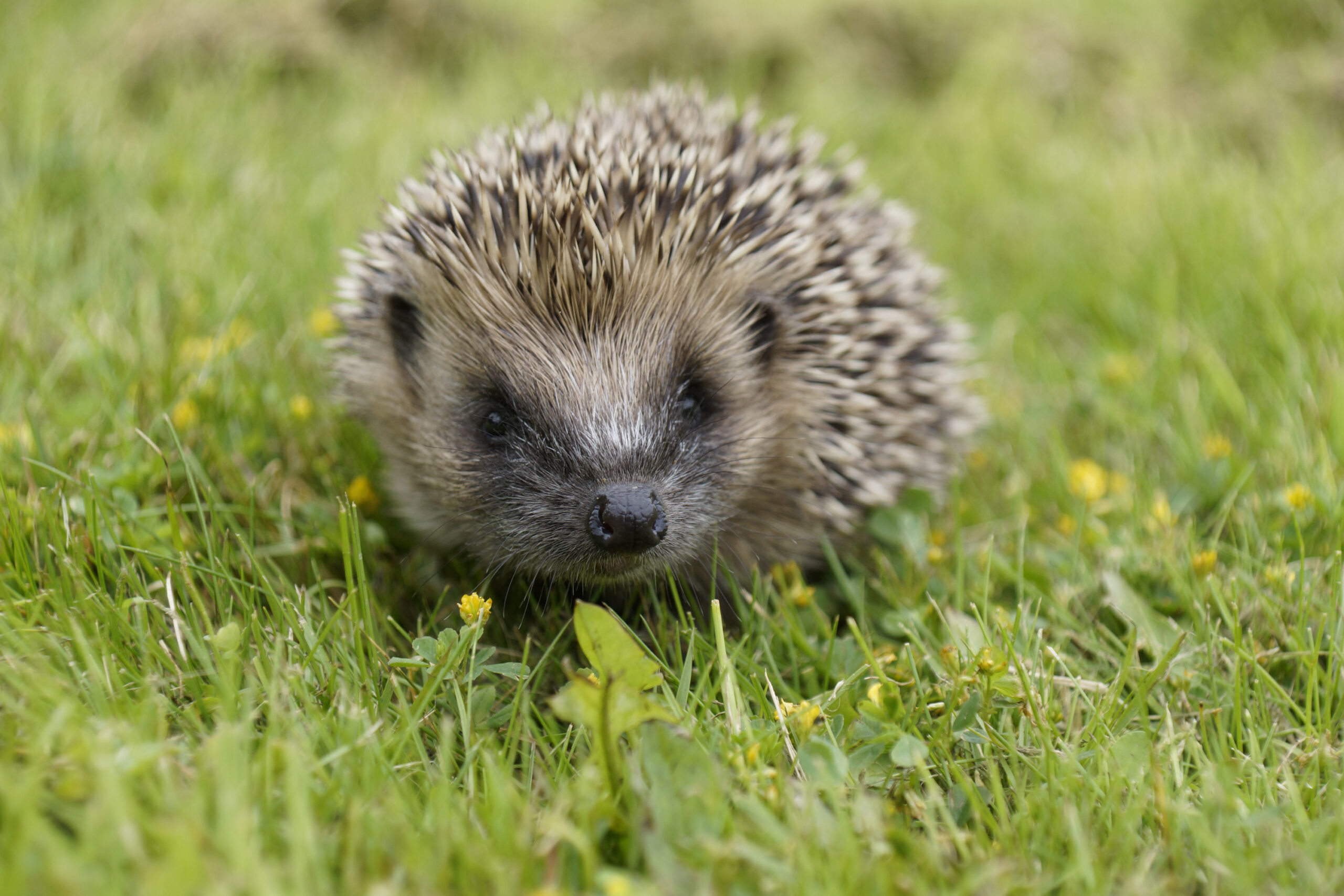Here’s how not to jeopardise the lives of hedgehogs in your garden
During Hedgehog Awareness Week, we look at what NOT to do if you want to help these garden creatures
So, Hedgehog Awareness Week (30th April to 6th May ) is here, when householders are urged to encourage these prickly visitors to their gardens.
Indeed, some have almost adopted them as pets, picking them up and taking cute pictures of them to post on Instagram. But there are fundamental mistakes we are making, unaware that our actions may cause hedgehogs stress or even poison them.
Native hedgehogs are vulnerable and should be treated with care, says Grace Johnson, hedgehog officer for Hedgehog Street, a nationwide campaign now celebrating its 10th anniversary, launched by wildlife charities People’s Trust for Endangered Species (PTES) and the British Hedgehog Preservation Society (BHPS).
Don’t keep them as pets
“It’s best not to handle native wild hedgehogs. Evidence shows they can get quite stressed if they are handled unnecessarily,” says Johnson. “A lot of the pictures you see on social media are of African pygmy hedgehogs, which people keep as pets and often you see them dressed up doing cute things. The wild species we have in the UK and Ireland is the west European hedgehog, which is a dark brown colour.
“African pygmy hedgehogs are much paler and quite distinct. They are a common pet in America. People here also keep them as pets, but you won’t find them in the wild. We don’t recommend them as pets.”
The RSPCA echoes these sentiments, noting that African pygmy hedgehogs are solitary wild animals that are naturally nocturnal and have complex needs that can be difficult to meet to keep the animal healthy and happy.
Don’t pick them up unless you think they are injured or sick
“If you see a hedgehog out and about at night, you are very lucky. As long as it’s not trapped, or caught in netting or drains, leave it and watch it from a safe distance,” says Johnson. “They don’t have a fight or flight reflex like we do. If they are feeling threatened they will curl up into a ball. They can bite, they are wild animals who will try to protect themselves if they need to.
“If you need to handle an injured hedgehog, wear thick gardening gloves to protect yourself and the hedgehog. Bring it inside and put it in a high sided box lined with an old towel or fleece that it can hide under because it will be scared. Also, put a hot water bottle filled with just warm water in there so the hedgehog can warm up if it needs to.”
Don’t move them too far away from the road
If you move a hedgehog that is precariously close to a road, it may disorientate the creature, Johnson warns. “In the summer months, that might be a mother who now can’t get back to her nest because she’s been moved away from it. Sometimes people might put them in a garden, but if that garden doesn’t have good access to other gardens and to their original nesting site, it can be dangerous. You could maybe steer it a little way from the road but not too far.”
View this post on Instagram
Don’t ignore it if you see a hedgehog during the day
“If you see one out and about in the day, it can be a warning sign and it often means there’s something wrong with it. As a guide, we say, if hedgehogs are moving quickly and look like they know where they are going, keep an eye on them from a distance.
“It could be a disturbed nest or a mum gathering nesting materials. But if it looks like it’s sunbathing or is wobbling on its legs, or if it has flies around it and looks injured, call the BHPS to check.”
Don’t use dog or cat flea powder on them
“Hedgehogs can be full of fleas, but they are host-specific so they can’t live on people or pets. If you see one in your garden covered in fleas, don’t use commercial pet treatments because they are generally going to be too strong,” says Johnson. “Seeing a hedgehog scratching is completely normal. But if it’s scratching loads and has lots of tics on it and you think they are potentially affecting its behaviour, again, call the BHPS for advice.”
Don’t give them milk or bread or fishy flavoured pet food
“We don’t recommend bread or milk or any human food. Hedgehogs are lactose intolerant, so the milk will upset their tummies. Bread doesn’t provide any nutritional value for them.
“Feeding hedgehogs is a good idea – we recommend meaty cat or dog food – but try to avoid fishy flavours because they can sometimes upset the hedgehogs’ tummy. Dried kitten biscuits and things like that are fine. You can get hedgehog mixes – but some are padded out with wheat and rice. Go for a high meat content in mixes. And leave water for them too.”
Don’t think that they will keep your slug population down
Some gardeners might create what they consider to be a hedgehog feeding station using slug and snail-loving plants such as hostas, but slugs and snails can give them internal parasites such as lungworm, warns Johnson. “Slugs and snails don’t form a major part of the hedgehogs’ natural diet. They’d rather feed on earthworms, beetles, caterpillars and earwigs.”
Don’t go mad with the strimmer or mower
“Have a mixture of long and short grass, leaving a patch of the lawn to be a bit longer. Try to plant native wildflowers and mix annuals such as cornflowers and poppies with perennials like trefoils.
“Rethink weeds a bit. Dandelions are good for insects and pollinators, while low dense shrubs such as hebes and UK grown fruit trees will attract insects as the fruit falls.” And if you are strimming, check first that there are no hedgehogs hiding in the long grass.
Avoid chemicals
Finally, “don’t use slug pellets or chemical fertilisers,” says Johnson. “Try to keep your garden organic, to encourage insect life.”
Hedgehog Awareness Week runs 30th April to 6th May For more information visit the BHPS at britishhedgehogs.org.uk and hedgehogstreet.org.
The Press Association
Latest posts by The Press Association (see all)
- World Penguin Day: Test your knowledge with our penguin-themed quiz - April 23, 2024
- Kate’s new photo of Louis released to celebrate prince’s sixth birthday - April 23, 2024
- Alan Titchmarsh: Slugs are never going to be my friends - April 23, 2024
- Prince Louis celebrates sixth birthday - April 23, 2024
- Special episode of Planet Earth III to be narrated by schoolchildren - April 22, 2024






















